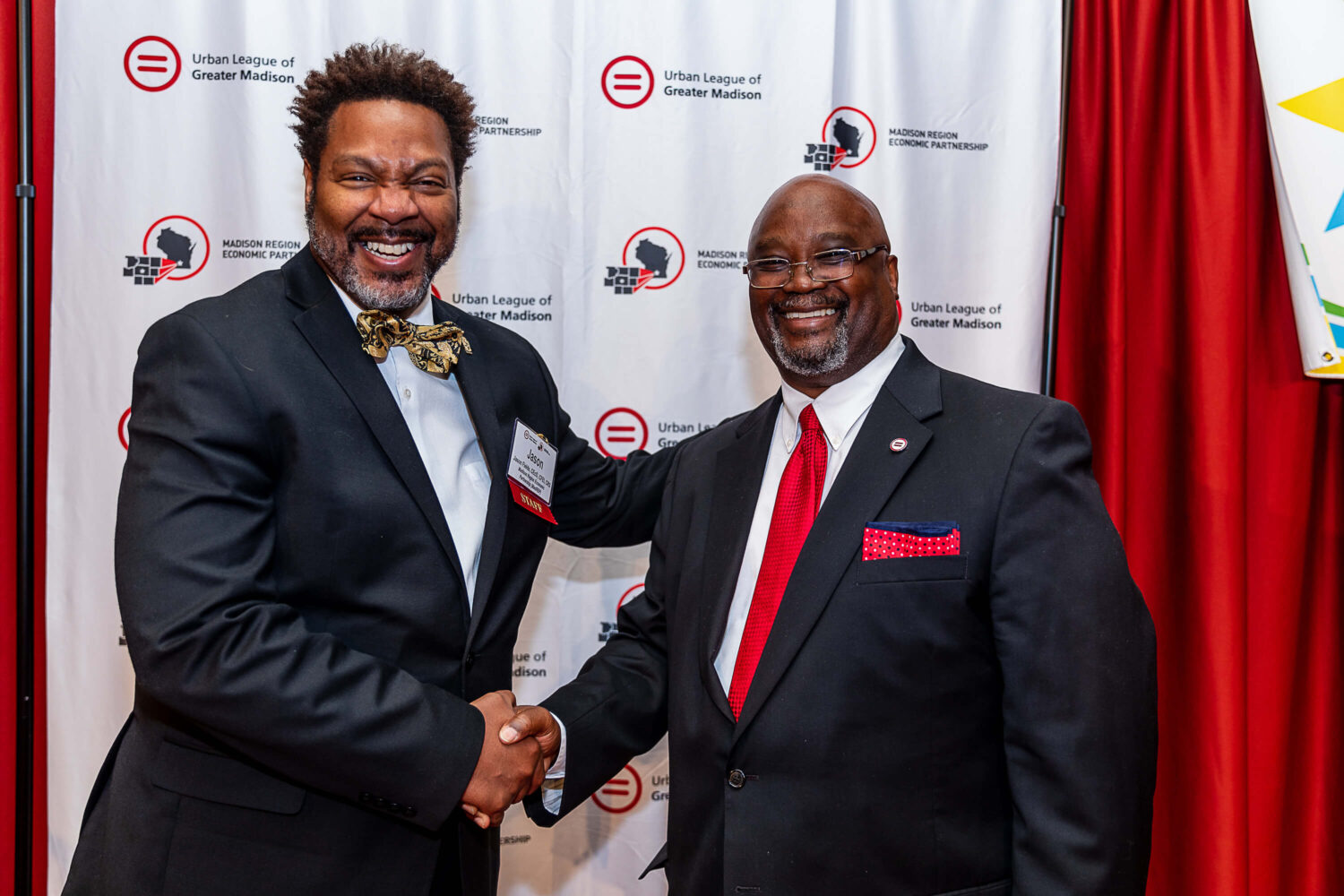A crowd of more than 500 business and community leaders joined MadREP and the Urban League of Greater Madison (ULGM) on Wednesday, May 10 at the tenth annual Madison Region Economic Development and Diversity Summit. The day-long event was packed with important conversations about equitable development and embracing diversity as the Region continues to grow.

Attendees enjoyed remarks from elected officials, economists and business and thought leaders from our Region and beyond. Keynote addresses from Laura Dresser, UW-Madison Clinical Associate Professor and Associate Director at the Center on Wisconsin Strategy (COWS), Jason R. Thompson, Vice President, Diversity, Equity, and Inclusion at Western Governors University, Troy LeMaile-Stovall, CEO, TEDCO (Maryland Technology Development Corporation), and Lela Lee, Actress/Creator of the “Angry Little Asian Girl.” All four speakers inspired and challenged the crowd to think about how we invest in diverse entrepreneurs and attract diverse talent to Southcentral Wisconsin.
As in previous years, the conference featured messages from Wisconsin Governor Tony Evers, WEDC Secretary and CEO Missy Hughes and welcomed Dane County Executive Joe Parisi and Madison Mayor Satya Rhodes-Conway to the stage.
Breakout sessions at the summit included two presentations and two panel discussions focused on equity and quality of life:
- “Embracing Neurodiversity in the Workplace,” with presenter Haley Moss, Attorney & Expert on Neurodiversity, Autism & Inclusion
- “Improving Quality of Life—Not Just Business—is the Best Path to Midwestern Rejuvenation,” with presenter Amanda Weinstein, Associate Professor in the Department of Economics, University of Akron
- “Pathways from Youth to Adult Apprenticeship: Examining UW Health as a Local Model,” with moderator Bridgett Willey, PhD, Director of Allied Health Education and Career Pathways, UW Health
- “What is Talent Really Looking For,” with moderator Mark Richardson, Founder & CEO, Unfinished Business
This unique collaboration between the Urban League the Madison Region serves as a national model for economic growth and economic inclusion. We would like to extend a special thank you to the many sponsors who made the event possible, especially our co-presenting sponsors, Alliant Energy and UW Health.
Feedback from the varied offerings of plenary and breakouts speakers was very positive the day of the event, as ideas, strategies, and tools were discussed to help organizations move their diversity and inclusion efforts forward. A few of the presentations from the Summit are available for sharing. If you are interested in sponsoring next year, getting involved, or receiving the presentation for a speaker or breakout session, please contact MadREP Operations and Fundraising Specialist Jana Moore at jmoore@madisonregion.org. Attendees are encouraged to respond to the follow-up survey sent out earlier, as feedback received on that form will help to drive the agenda for the 2024 Summit.
If you missed it, check out the conversation on twitter at #madsummit as well as photos from the day. We are grateful to everyone who helped make this continued collaboration a success. Don’t forget to save the date for next year: May 2, 2024.

 Source: The Cap Times
Source: The Cap Times